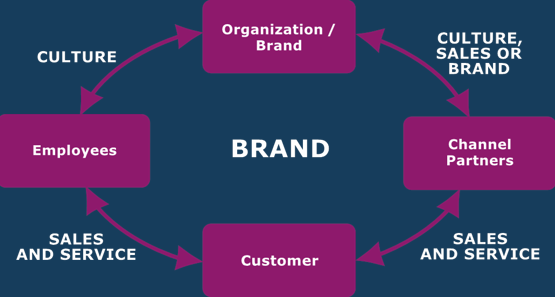At One10, we’ve been in the relationship marketing business for a long time. Not too long ago, we even led with the tagline: “Building Better Relationships”. A client once asked me, “how do you know you’re building better relationships?” Little did this client know, she was about to receive an earful.
Our quest to understand and improve relationships dates back to the 1990s. One of our strategists shared a paper titled “The Commitment-Trust Theory of Relationship Marketing.” Written by Dr. Robert Morgan and Dr. Shelby Hunt and published in a 1994 issue of the Journal of Marketing, this paper directly aligned with our thinking and specifically, relationship marketing. Our “relationship marketing model” defined the highest level of a relationship as “committed,” just as Dr. Morgan’s work did. Over time, we worked with Dr. Morgan to refine the model into our three components: trust, alignment, and commitment. High levels of each of these attitudes indicate a strong relationship. On the contrary, lower levels indicate a weak or non-existent relationship. From this basis, we built RSx℠, our model for measuring, diagnosing, and improving relationships.

Build Trust
Trust is the first of the three parts of a relationship to form simply because it is the mother of economic necessity. You must trust someone before buying from them. You typically don’t participate in conversations with those who seem untrustworthy. A good example is the way you feel when visiting a phishing website – slimy and inauthentic. You don’t buy a car from someone who you don’t believe you can trust. The perceived ability and reliability of the other party in the potential relationship enables you to take the first step in the connection itself.
Create Alignment
The second phase of the relationship is creating alignment. Once trust is established, can you get what you want out of the relationship? You’ve established a trusting connection with the sales consultant at the auto dealership, but can you agree on the right car with the right features at the right price? If not, you may move on to the next brand and dealership. Once alignment is established at the right dealership, you may decide to pull the trigger on a brand-new car and return to that location for service as needed.
Become Committed
Over time your levels of trust and alignment with your car, the manufacturer, and dealership all grow and you eventually become committed to the relationships you’ve established with each. What happens the next time you are in the market for a new vehicle? Chances are, if you have a strong relationship with each of the parties, you’ll be back at the same dealership, working with the same sales consultant to get a car made by the same manufacturer. In fact, you probably wouldn’t even think about any other automotive brand. That is exactly the type of relationship we strive to understand and model by using RSx℠.
While we’ve written a lot about a consumer relationship, RSx℠ and the concepts of trust, alignment, and commitment apply to any type of relationship. The consumer/auto manufacturer relationship is primarily a brand relationship. The dealership to consumer is a “sales and service” relationship. The brand’s relationship with its own employees is a relationship that defines the corporate culture. The brand’s connection with the employees of its dealers can be either one of a total culture if the dealer sales reps are treated more like employees of the brand, or a sales and service relationship if they are kept at arm’s length. For all of these relationships to work effectively, they all need to be in equilibrium and carefully managed.
How can you most effectively manage these relationships? Using an RSx℠ Diagnosis model, you can uncover how the different relationship drivers impact trust, alignment, and commitment. From there, you can determine how they contribute to the relationship outcomes that are important to your business. Do you want to ensure the customer above returns to buy another car? Give us a call.

Jennifer Albee
Senior Director of Training Jennifer Albee is a seasoned performance improvement professional with over two decades of experience consulting clients on learning strategy, instructional design, development, and delivery. She heads a team of accomplished professionals specializing in curriculum strategy, e-learning design & development, performance support systems, employee engagement, new hire training, and product/process training. With a focus on the automotive sector, Jennifer has also served clients in retail, hospitality, and manufacturing industries.




